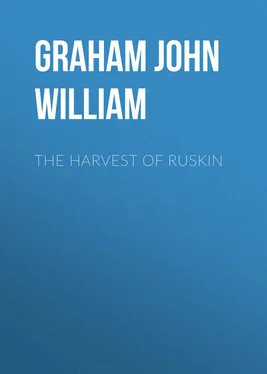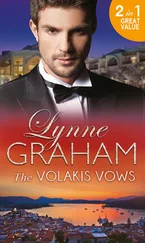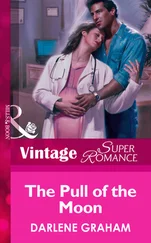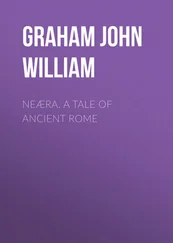John Graham - The Harvest of Ruskin
Здесь есть возможность читать онлайн «John Graham - The Harvest of Ruskin» — ознакомительный отрывок электронной книги совершенно бесплатно, а после прочтения отрывка купить полную версию. В некоторых случаях можно слушать аудио, скачать через торрент в формате fb2 и присутствует краткое содержание. Жанр: literature_19, foreign_antique, foreign_prose, на английском языке. Описание произведения, (предисловие) а так же отзывы посетителей доступны на портале библиотеки ЛибКат.
- Название:The Harvest of Ruskin
- Автор:
- Жанр:
- Год:неизвестен
- ISBN:нет данных
- Рейтинг книги:5 / 5. Голосов: 1
-
Избранное:Добавить в избранное
- Отзывы:
-
Ваша оценка:
- 100
- 1
- 2
- 3
- 4
- 5
The Harvest of Ruskin: краткое содержание, описание и аннотация
Предлагаем к чтению аннотацию, описание, краткое содержание или предисловие (зависит от того, что написал сам автор книги «The Harvest of Ruskin»). Если вы не нашли необходимую информацию о книге — напишите в комментариях, мы постараемся отыскать её.
The Harvest of Ruskin — читать онлайн ознакомительный отрывок
Ниже представлен текст книги, разбитый по страницам. Система сохранения места последней прочитанной страницы, позволяет с удобством читать онлайн бесплатно книгу «The Harvest of Ruskin», без необходимости каждый раз заново искать на чём Вы остановились. Поставьте закладку, и сможете в любой момент перейти на страницу, на которой закончили чтение.
Интервал:
Закладка:
Here, then, we have every sign of the prophetic character: fidelity to the deepest motives of the soul, an inevitable and generally unconscious selflessness, the loyalty of his followers, his frank openness to the world, his consecrated life and holy sorrow, the antagonisms he evoked and the contempt of the proud, and the clear influence he is exerting – these, all together, are prophetic.
Let us examine his outward qualifications. Ruskin’s judgment was at times erratic; his playfulness and his petulance prevent our taking everything he said with prosaic seriousness; he was not always able to speak in measured tones of sober exactness, but gave way to exaggeration. But his intellectual equipment was of the best. He was heir both to Greece and to Judæa. The Bible was his text-book and Plato was his political teacher. All culture was at his command. Oxford, Geneva, Rome, Venice, the Alps, the Apennines and the Lake of Coniston had yielded up their best to him. He prophesied from no street corner – from the Sheldonian Theatre in the University of Oxford his message was uttered.
So much for the signs and for the outward qualifications of the seer. The prophet’s fire is recognizably there. The tabernacle of God is with men, as of old; and if He is to speak with a clear Word to our hasting age, to preach righteousness, purity, work to the idle and rest to the weary, clean cities, and clean hearts, how else would He preach than with the text of Ruskin: “Consider the lilies of the field, how they grow; they toil not, neither do they spin; and yet I say unto you that your millionaires in all their glory of machines cannot supply to us the loss of these.”
At the age of forty-one, about the time when the mind reaches maturity, begin the social teachings of John Ruskin in full completeness – not to be much changed, except in one particular, for the quarter of a century of writing that was left him. The live coal from off the altar came to him as he was wandering in restless suffering among the valleys of Savoy, and his first “Thus saith the Lord” was written at Chamonix. Not that all this came at once. The growth can be traced; but before 1860 he was chiefly an art critic, and in that year the last volume of Modern Painters appeared.
Let us look at the advantages of the delay. They were manifold. A man should do something else besides prophesy. He should win his position, take his rank among men, in some walk of life, before he is quite qualified to tell others how to order their steps. He has a degree to take in something besides homiletics. It was from the pulpit of a great literary reputation that the author of Modern Painters opened his mouth to preach. That reputation he was content utterly to throw away; to tread on it, step upon it as upon a ladder, that from the top of it he might be heard when he spoke the words the Spirit taught him. That was the great renunciation of his literary life. What a refusal of a call it would have been had he hugged his reputation, been careful of his influence, that last temptation of noble minds. It is politicians who do that, not prophets. But these know the glorious liberty into which they come.
No doubt any other professional career would have ended with a message. What an explosion might have occurred in the Church had his mother’s wish been fulfilled, and he become a clergyman, with a Bishop to look after him. As it was, his father’s art tastes and preoccupation with pictures and with picturesque scenery, and the boy’s own early skill both as writer and draughtsman, led him, after an attempt at poetry, to become by profession a writer on Art. There he had the opportunity of elaborating his mighty implement, that superb, facile, plastic instrument of music and voice of thunder, his inimitable style. It is that which ensures the preservation of his work. Noble style is the antiseptic which preserves from decay the written words of men. Books without style are not read long.
In classifying the books in our libraries, under what head shall we place the seventy volumes of John Ruskin? There is much temptation to fall back helplessly upon the heading “Miscellaneous”; for he wrote on Art, including Sculpture, Engraving, Architecture and Heraldry; on Economics, History and constructive Politics; on Botany, Meteorology, Ornithology, Geology, and Mineralogy; he wrote Guide-books, Poems, Autobiography, Literary Criticism; he treated Theology, Ethics, Education, Music and Mythology; he brought out regularly for seven years a monthly periodical de omnibus rebus et quibusdam aliis ; he edited Biography, German stories and translations from the Greek and the Italian: he wrote Dialogue and Fairy Tale.
Where shall we seek for unity in this manifold outpouring of a versatile genius, who touched none of these subjects without irradiating it? In that fact lies our key. With what did he irradiate this comprehensive list of human interests? The answer cannot be doubtful in the mind of any careful student. He told us how it seemed to him that all these things looked to the eye of God. He tried to solve all questions by the flashlight of the Eternal. He worked at agate and crystal that it might reveal the beauty of the Lord; he fought his social crusade for the sake of the dim disinherited multitude who had no eyes for the Divine loveliness, and no glory to behold: and for the sake of justice and of love which wealth and luxury denied. He was a messenger of the Most High to modern needs; and his eager soul found a service throughout this wide range of science and art.
Not one of his writings is called a sermon, yet we have found his class, for he belongs to the class of Divines, ordained in a temple more Metropolitan and more Catholic than Canterbury or Rome, and not made with hands. Through nearly half a century of active authorship he consecrated his every gift to the service of men. He never looked back in any unfaithfulness that we know of. I wish first to make clear that all his life the gates between the soul and the Divine Source were open: that he was truly a religious man under every form of faith and doubt; and that no one need hesitate about this at any tight place in his career. Keep this as a sure clue, and we shall fearlessly follow his story.
The childish sensibility to landscape beauty I take to be an early manifestation of the gift of the seer, a significant token of native nearness to the Unseen. For many years he never climbed a mountain, alone, without instinctively dropping on his knees on the summit, in thankful reverence. As the careless foot of an engrossing industrialism stamped into ashes more and more of the land whose fairness had been his life’s passion, it seemed to him to be indeed sacrilege and desecration, a reckless destruction of Divine things. Art he only valued as a form of expression, a language whose subject was Nature and Man. In the latter half of his life more emphatically, but more or less from the beginning, he regarded Man as the object for whose welfare Nature, in the landscape sense, existed; and he rested not till he had brought Man into due relation with God, up to whom in the end came all things.
He was devout by training. Morning and evening he read his chapter out of the Bible; and the fourteenth century manuscript he used in later years occupied a prominent and handy place in the study at Brantwood. In Swiss and Italian villages in his early journeys he read the service through on Sunday to his servant, when there was no Protestant Church. From the Biblical references in the indexes to his works, you would suppose they were a theological library. In his Oxford Lectures Art was the illustration, but conduct the theme, and Art was chosen as an illustration because in it the artist shows what manner of Man he is, in a way that cannot be dissembled.
What are the qualifications which fit a man to be a religious researcher, a mountain-top gazer into heaven?
Читать дальшеИнтервал:
Закладка:
Похожие книги на «The Harvest of Ruskin»
Представляем Вашему вниманию похожие книги на «The Harvest of Ruskin» списком для выбора. Мы отобрали схожую по названию и смыслу литературу в надежде предоставить читателям больше вариантов отыскать новые, интересные, ещё непрочитанные произведения.
Обсуждение, отзывы о книге «The Harvest of Ruskin» и просто собственные мнения читателей. Оставьте ваши комментарии, напишите, что Вы думаете о произведении, его смысле или главных героях. Укажите что конкретно понравилось, а что нет, и почему Вы так считаете.












